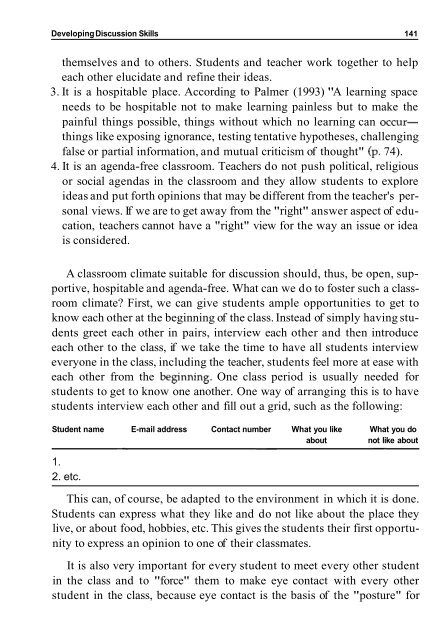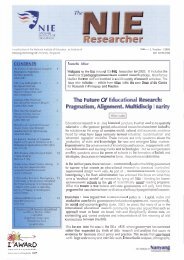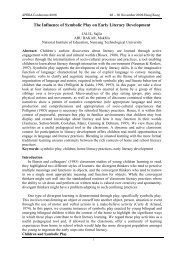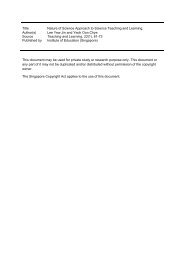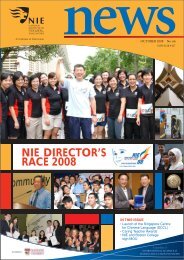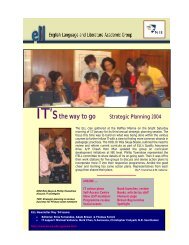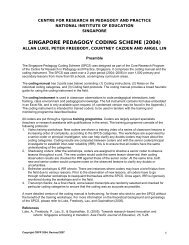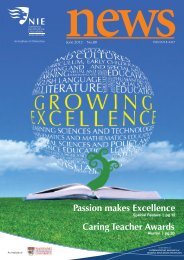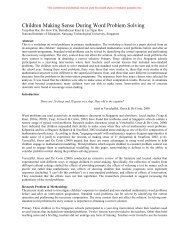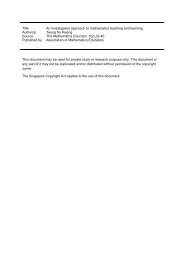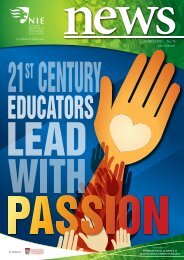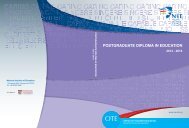Cooperative Learning - NIE Digital Repository - National Institute of ...
Cooperative Learning - NIE Digital Repository - National Institute of ...
Cooperative Learning - NIE Digital Repository - National Institute of ...
Create successful ePaper yourself
Turn your PDF publications into a flip-book with our unique Google optimized e-Paper software.
Developing Discussion Skills 141themselves and to others. Students and teacher work together to helpeach other elucidate and refine their ideas.3. It is a hospitable place. According to Palmer (1993) "A learning spaceneeds to be hospitable not to make learning painless but to make thepainful things possible, things without which no learning can occurthingslike exposing ignorance, testing tentative hypotheses, challengingfalse or partial information, and mutual criticism <strong>of</strong> thought" (p. 74).4. It is an agenda-free classroom. Teachers do not push political, religiousor social agendas in the classroom and they allow students to exploreideas and put forth opinions that may be different from the teacher's personalviews. If we are to get away from the "right" answer aspect <strong>of</strong> education,teachers cannot have a "right" view for the way an issue or ideais considered.A classroom climate suitable for discussion should, thus, be open, supportive,hospitable and agenda-free. What can we do to foster such a classroomclimate? First, we can give students ample opportunities to get toknow each other at the beginning <strong>of</strong> the class. Instead <strong>of</strong> simply having studentsgreet each other in pairs, interview each other and then introduceeach other to the class, if we take the time to have all students intervieweveryone in the class, including the teacher, students feel more at ease witheach other from the begnning. One class period is usually needed forstudents to get to know one another. One way <strong>of</strong> arranging this is to havestudents interview each other and fill out a grid, such as the following:Student name E-mail address Contact number What you like What you doaboutnot like about1.2. etc.This can, <strong>of</strong> course, be adapted to the environment in which it is done.Students can express what they like and do not like about the place theylive, or about food, hobbies, etc. This gives the students their first opportunityto express an opinion to one <strong>of</strong> their classmates.It is also very important for every student to meet every other studentin the class and to "force" them to make eye contact with every otherstudent in the class, because eye contact is the basis <strong>of</strong> the "posture" for


